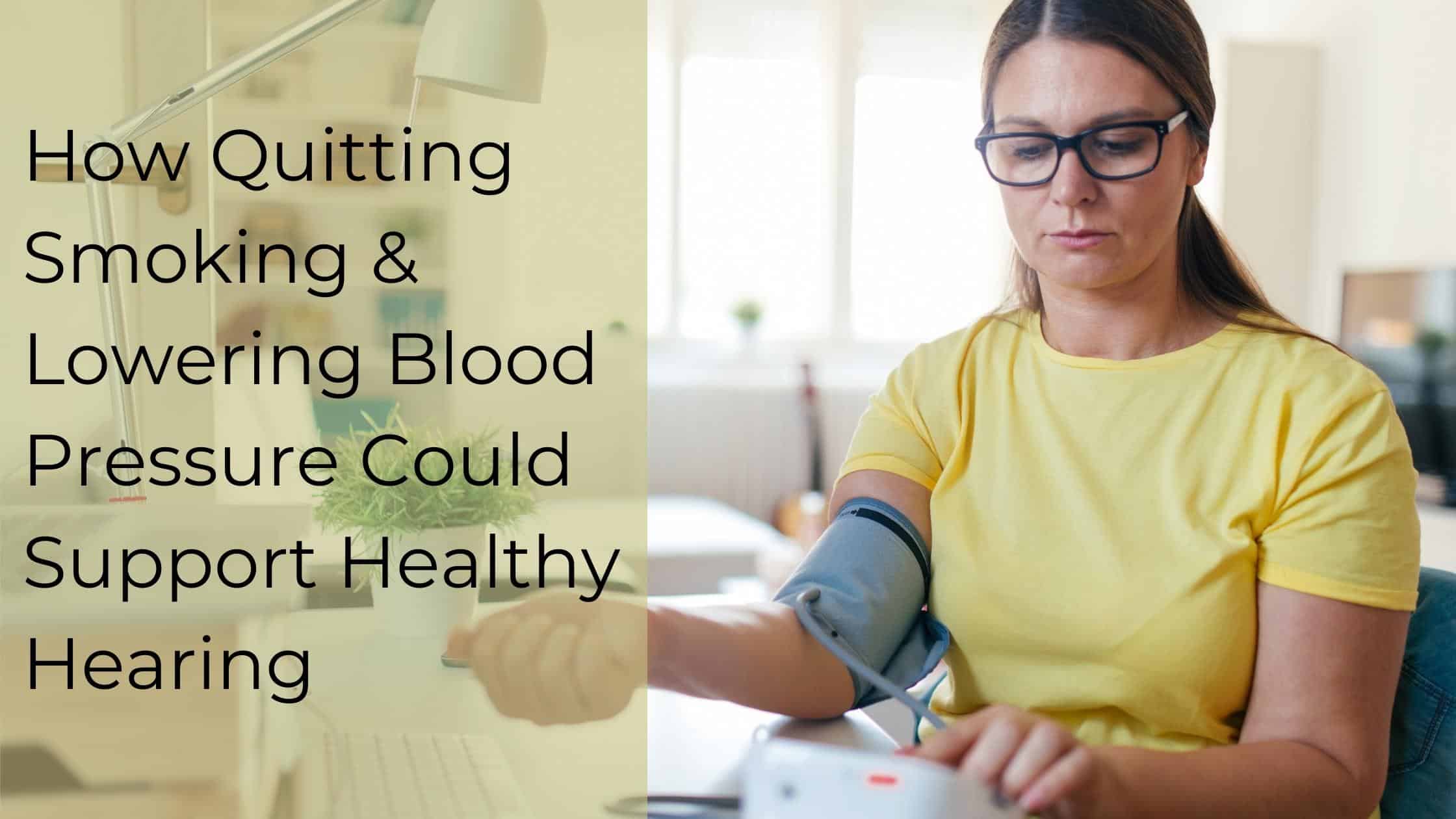
- Common Misconceptions That Delay Hearing Loss Diagnosis - June 6, 2025
- Signs Your Earwax Buildup Needs Professional Attention - May 29, 2025
- Preparing for a Hearing Test and What You Should Bring - May 16, 2025
Hearing loss is common among people of all ages. In fact, nearly 50 million Americans have hearing loss! And age isn’t the only cause of hearing loss. Exposure to loud noise can also damage your hearing. A number of other risk factors will also increase your chances of hearing loss. Here’s how quitting smoking and lowering blood pressure can support healthy hearing.
Smoking and Your Ears
Did you know that smoking affects your ears? Smoking has a number of health risks, such as an increased risk of cancer and heart disease. It’s also linked to hearing loss. If you smoke regularly, you’re 60% more likely to have hearing loss than people who don’t smoke. Second-hand smoke is bad too, and if you live with a smoker you’re also more likely to have hearing loss. Smoking even increases your risk of developing tinnitus or having vertigo.
Smoking can do a lot of damage. When you smoke regularly, you’ll have much lower blood oxygen levels. This means the blood isn’t carrying enough oxygen to cells throughout your body. Your ears aren’t as important as your vital organs, so they are more likely to be oxygen deprived. The delicate cells in your inner ear can be easily damaged, or even die, when they aren’t getting the oxygen they need. Once the cells in your ears are damaged they can’t be repaired, and you’ll experience hearing loss.
Smoking can also irritate the back of your throat and inflame the Eustachian tubes connecting your middle ears to the throat. That’s why ear infections are more common among smokers than non-smokers. Finally, when smoking weakens the cells in the ear, these cells are more easily damaged by loud sounds, so smokers have higher rates of noise induced hearing loss.
High Blood Pressure and Your Ears
Smoking also raises your blood pressure. This can damage your ears in a hurry. When you have high blood pressure, your heart has to work harder to pump blood through your arteries to all the cells in your body. All this extra work can weaken your heart. High blood pressure increases your risk of heart disease, stroke, or heart failure.
When it comes to your ears, high blood pressure can do a lot of damage. The sensitive cells in your ears can’t withstand the added pressure, and they are easily damaged.
Quit Smoking & Lower Blood Pressure
Did you know that even a few minutes after your last cigarette your blood pressure can start to decrease? Making this one change can have a huge impact for your overall health and wellbeing. When you quit smoking, your blood oxygen level goes up and your circulation improves. A few hours after your last cigarette your oxygen levels are almost back to normal! And within a few days your sense of taste and smell will improve. Quitting smoking also lowers your blood pressure and helps your cells stay healthy and strong.
Look After Your Heart
Doctors are quick to tell you that what’s good for your heart is good for your body and your brain. By looking after your heart, you can reduce your risk of hearing loss, and improve your overall health and wellbeing.
Take a look at your diet, and eat heart-healthy meals including lots of fruits and vegetables. Cut back on your caffeine and alcohol intake, and make sure you do a few minutes of activity every day. These simple steps will also help you lower your blood pressure and protect your hearing.
Hearing Health is Our Priority!
Your hearing health is closely linked to your overall health and wellbeing. After all, every part of the body is closely connected. When you quit smoking, lower your blood pressure, and look after your heart, you’ll see a lot of benefits. You’ll breathe easier and enjoy more energy. You will even reduce your risk of hearing loss!
Do the right thing for your ears and schedule a hearing test with our team. A hearing test will tell you more about your hearing health, and identify any hearing loss. If you have a hearing loss, we’ll help you find the right hearing aids that support your lifestyle and match your hearing needs.
